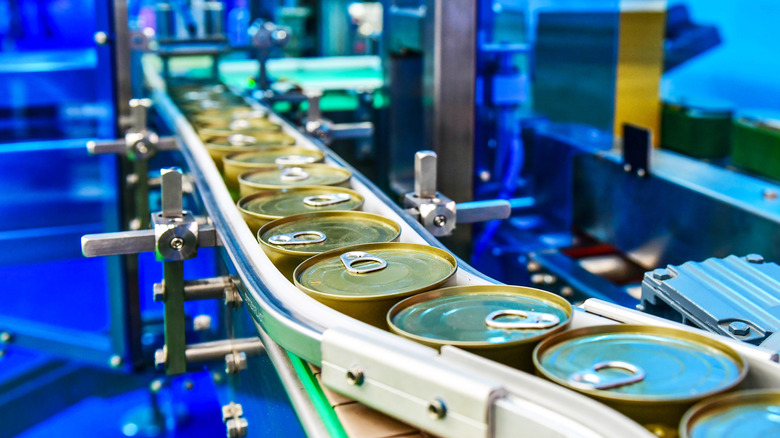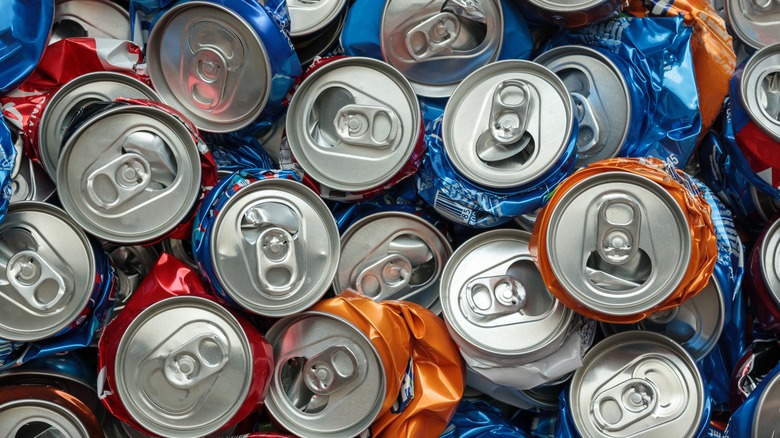The Real Reason There's A Canned Food Shortage In 2022
We've come a long way since Napoleon III considered aluminum to be more precious than gold — a time when NPR says the emperor and his special guests used aluminum utensils, while gold cutlery was used by everyone else. And while aluminum is the planet's third most abundant element (behind oxygen and silicon), it may not feel that way at the moment, particularly given the canned food and beverage shortages we're seeing in the nation's supermarkets. The can shortage is even being felt in the pet food sector, where Fox 6 reports manufacturers are starting to pack wet pet food in pouches, in order to try and meet as much of the demand as possible.
Blaming the coronavirus pandemic for the troubles that are plaguing the country's packaging industry might feel like a tired, worn-out trope, but that's exactly what our food and beverage manufacturers are seeing today. As Quartz put it, "Americans literally can't get enough aluminum cans," and that demand cycle was kicked up when shelter in place began back in 2020.
Data shows aluminum consumption spiked during the coronavirus pandemic
When the COVID-19 pandemic first struck in 2020, it didn't actually stop us from consuming sodas, beers, and hard seltzers; it just meant we were consuming them out of cans from the comfort of our homes. Consulting company Smithers noted that the increase in consumption fueled by the lockdown in both North America and Europe caused a spike of 10% in demand for canned goods, while an international trade disruption impacted the smooth flow of raw materials from where they were being mined and processed, to where they needed to be finished.
Unfortunately, the pandemic also struck during a period of increased demand for cans. Quartz spoke to Seaport Research Partners' senior analyst Salvator Tiano, who said there was a growing preference for cans because they could be customized and made into special shapes to meet marketing demands. They were cheaper to make and to move about because they were lighter, and easier to stack than glass bottles. Then there is the perception that aluminum is better for the environment because it can be recycled with ease — nearly 75% of all the aluminum ever produced is still being used today, via The Verge.
With an insatiable appetite for aluminum cans (according to The World Counts, we consume 180 billion cans a year, and 6,700 cans a second), coupled with the tidal wave effect of the Russia-Ukraine war on our weakened global supply chains, it may be a long while before we see supplies of a shelf staple become stable once again.

